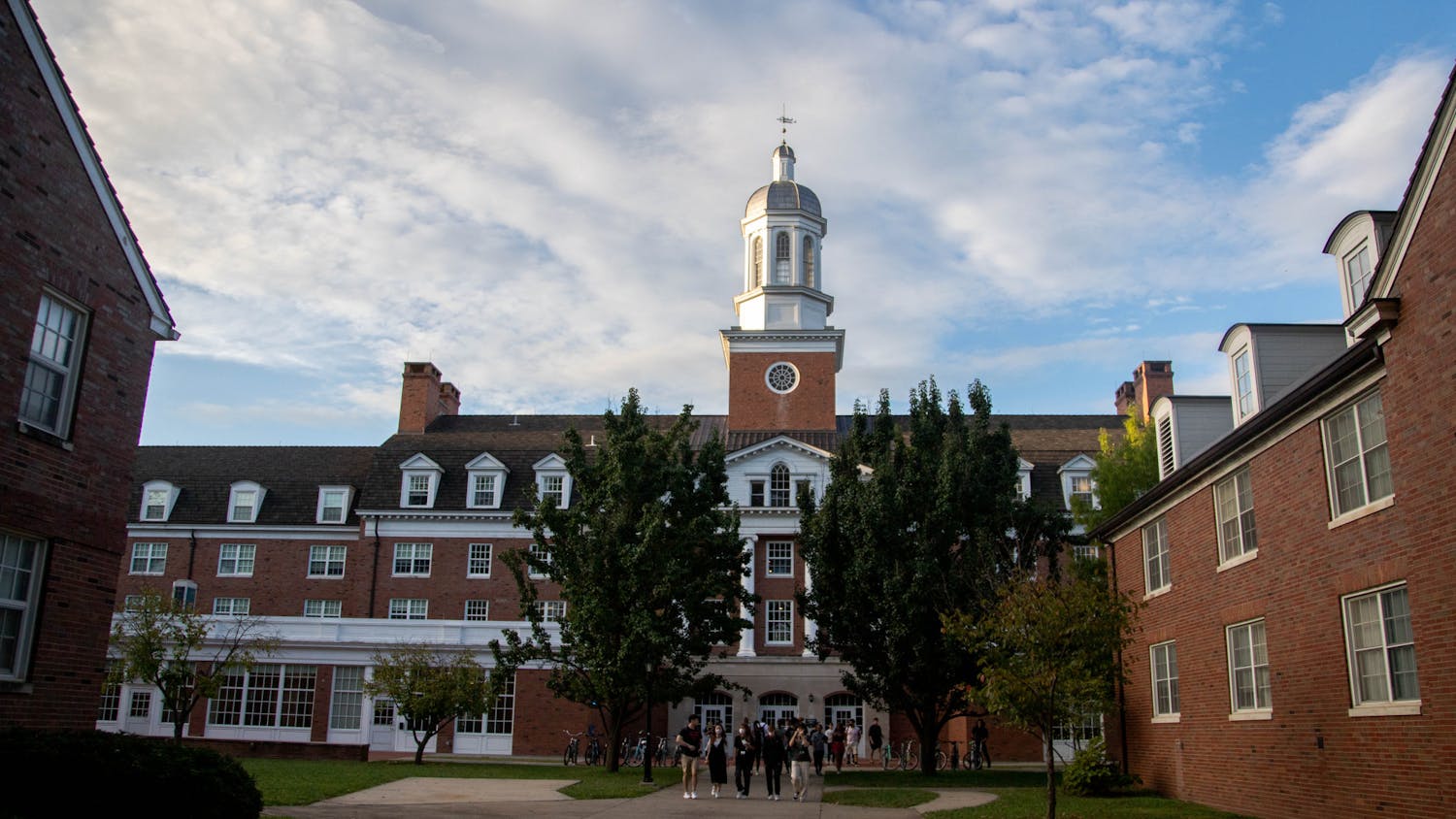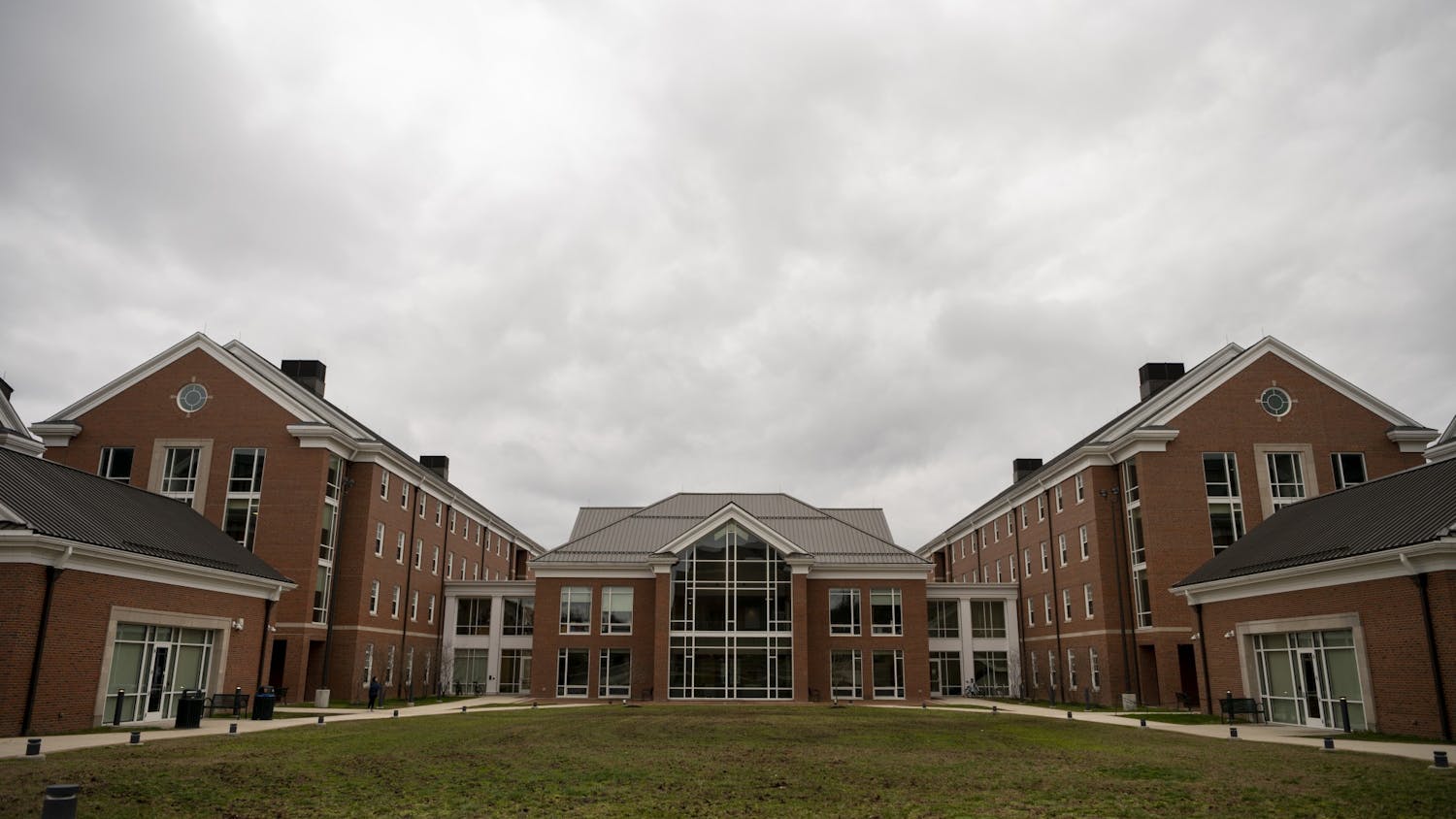Over the summer, Ohio University gave select students who were supposed to live in on-campus residence halls the option to relocate to apartments in River Park Towers due to the enrollment size of its freshman class.
OU enrolled a record-breaking 4,441 freshman students at its Athens campus, which is a 21% increase compared to enrollment numbers for 2021, according to a university news release.
Due to that increase, OU partnered with River Park Towers to provide additional housing options to second-year students assigned to live in Read Hall, Ewing House and Dougan House. Those residential halls, which were originally offered only to second-year students, now house first- and second-year OU students.
Students were given the option to stay in their assigned residence halls, move to River Park or have the housing requirement waived and live off-campus, Jneanne Hacker, executive director for Housing and Residence Life, said.
"We realized that the numbers were coming in strong and we had to make some operational decisions.” Hacker said. “Even though we felt like we would be able to accommodate the number of students desiring on-campus housing in our residential experience, we wanted to ensure that we allowed for those proper spaces (room changes and quarantine housing) to really address student needs once the academic school year began.”
As part of OU’s housing requirements, all students must live in on-campus housing for two consecutive years.
Dan Pittman, a university spokesperson, said Housing and Residence Life had 119 beds available at River Park.
Of the students given those options, only seven chose to live entirely off-campus, Hacker said.
Students in River Park are still bound to the university’s housing contract and all university codes of conduct. To help facilitate an on-campus environment, OU has put “building managers” in place to serve a similar function to traditional resident advisers.
Prior to Fall Semester move-in, Sam Halper, a sophomore studying engineering, was one of the students given the opportunity to live in River Park. He was originally supposed to live in Ewing House. Halper accepted the offer.

Halper said he did not receive an email or a call informing him of the option to move. Instead, following his roommate telling him they would be living in River Park, he called the university to find out what was going on.
“I actually found out secondhand through my other roommate,” Halper said. “That was kind of a little frustrating, but I had to call the school a few times to clarify what was going on. We didn't know what was happening the first couple of weeks or for maybe a month or so.”
Halper said the experience living in River Park so far has been different from the standard residential hall experience.
The most notable differences between the two living situations are privacy and only sharing common areas, such as the kitchen and living room, Halper said. Additionally, although River Park is not located on campus, its proximity to campus allows him to quickly walk to classes.
Students still pay their housing fees to OU, Hacker said, and the cost is currently similar to that of a renovated double residence hall room. Those living in River Park pay $4,145 per semester.
The only pricing difference for those in River Park is the lack of a meal plan. Due to the kitchens included in River Park apartments, students are not required to have and use OU meal plans, Hacker said.
Looking into next year, the university is currently coordinating with River Park and other apartment complexes regarding the possibility of continuing the format for sophomores, Hacker said.






